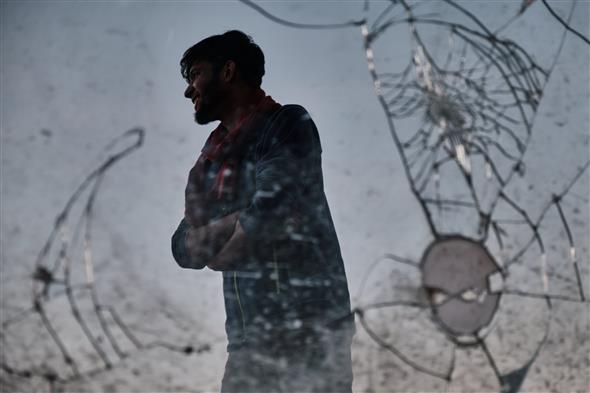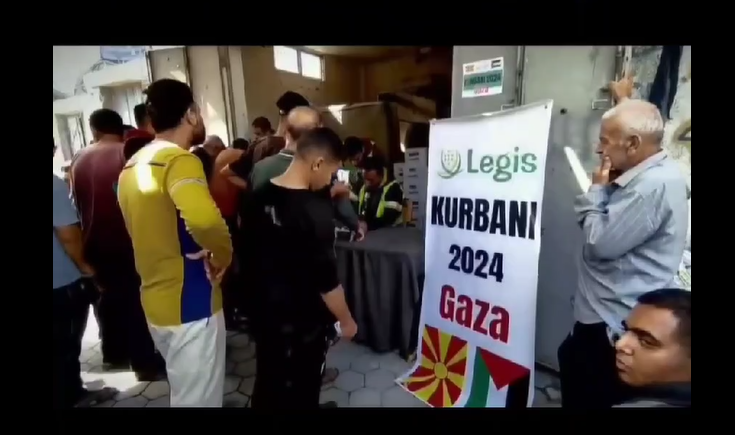Migrant people stranded at the Bosnian border wait for the right moment to try their hand at the “game”. Normally they must try multiple times due to violent pushbacks by border forces.

“I joke 24/7, how can you live here otherwise?” Sohail Khan, a 23-year-old man from the Paktia province of Afghanistan, says. In Bosnia and Herzegovina, in the corridors of the abandoned buildings and in the shelters where people on the move are living, time has frozen.
This photo-story was created in the Una-Sana canton, in the northwest of the country, at the border with Croatia, during February and March 2021. Each year, thousands of migrant people try to reach Europe along the Balkan route. The majority come from Afghanistan and Pakistan, although it’s not uncommon to meet people from Iran, Iraq and Syria, as well as other countries. Young men represent the majority of those following this route; however, there are also families with young children, and elderly. They flee war, persecution or poverty, looking for a dignified life. After the formal closure of the Balkan route in March 2016, people were left with no other choice than to pursue irregular ways of entry. Whilst originally most went through Serbia, the tightening of the borders along this route meant that since 2018, more people started to transit from Bosnia and Herzegovina instead.
The country has become a forced stop for them. In fact, people regularly report being victims of pushbacks when they try to cross the border into Croatia – what is referred to as the “game”.
The journey normally involves walking in the woods, across mountains and rivers, for two to three weeks, through Croatia and Slovenia to Italy. People mostly walk at night, to limit the risk of being detected. Winters in this region are quite tough. Moreover, bare trees and the terrain being covered in snow highly increase the chance of being spotted. Fewer people decide to face winter conditions and those who do are encouraged by the hope of fewer police controls. The majority, however, spend the winter in Bosnia and Herzegovina, sometimes moving back from the border area to other parts of the country. At the time these photos were shot, as the snow was melting and temperatures started to rise, more people were attempting to play the border crossing “game”.
Men normally travel in groups, relying on the help of a guide who leads the way, through arrangements with smuggling networks. According to testimonies of people attempting to cross the border, the “walking game” comes at a price – around €1,000 each. Those who cannot afford it, have no other choice than to attempt the whole journey on foot by themselves, in small groups, relying on their phones, battery packs and sense of direction only. A minority of people instead pay three to four times this price to go for a “taxi game”, where they are driven for most of the journey.
When people are detected by the police or special forces in Croatia, who also rely on drones for their searches, they are brought back to the border. According to the Danish Refugee Council (DRC), an international humanitarian displacement organisation active in the country, 23,853 people have reported pushbacks to Bosnia and Herzegovina from May 2019 to February 2021. This number gives an idea of the scale of the phenomenon. While this number is probably underestimated, as not all episodes are reported, the same person can be, and normally is, pushed back multiple times, each instance being counted as one.
Since 2018, the Border Violence Monitoring Network (BVMN), a watchdog hub collecting testimonies through several organisations on the ground, has reported the use of physical and psychological violence during pushbacks.
The situation has not improved in recent years, also due to a lack of an independent investigation on this practice, as a result of which law enforcement officers continue to enjoy impunity, as denounced by the Council of Europe Commissioner for Human Rights, in December 2020.
The pushbacks usually take place using vans that are driven very fast and without any care for the passengers who are packed inside. Money, phones and personal belongings are normally taken away. It is not uncommon to hear that people are deprived of their shoes too, thus having to walk back barefoot for hours until they find shelter, sometimes in the unbearably cold Bosnian winter. In an alarming recent report, the BVMN also refers to “disturbing trends […] regarding the use of police dogs and sexual violence by officers.”
As stated by the DRC, “the beginning of 2021 did not give much hope to people stranded at the EU’s external borders that protection of their rights would take priority over protection of borders”.
Families with young children cannot face the same lengthy and dangerous journey as single men in groups. They normally cross the border and present themselves directly to the Croatian police in order to request asylum, most of the time to no avail. As the number of families from camps in Greece who reach and then get stuck in Bosnia have increased, so have their pushback reports at the beginning of 2021. And “while very young children are rarely themselves the subjects of physical violence, they are often witness to very brutal and humiliating acts carried out against their parents,” as reported by the BVMN, raising concerns about “the lasting impact of these traumatic events.”
Most people report trying several times, even dozens of times, before being able to reach a European country where they can apply for international protection. This means months, or even years, stuck in limbo, which cannot but exacerbate the trauma of what people had to endure.
They come back, each time, to these corridors, suspended in space and time, where dreams are on hold.
Source: wearesolomon




